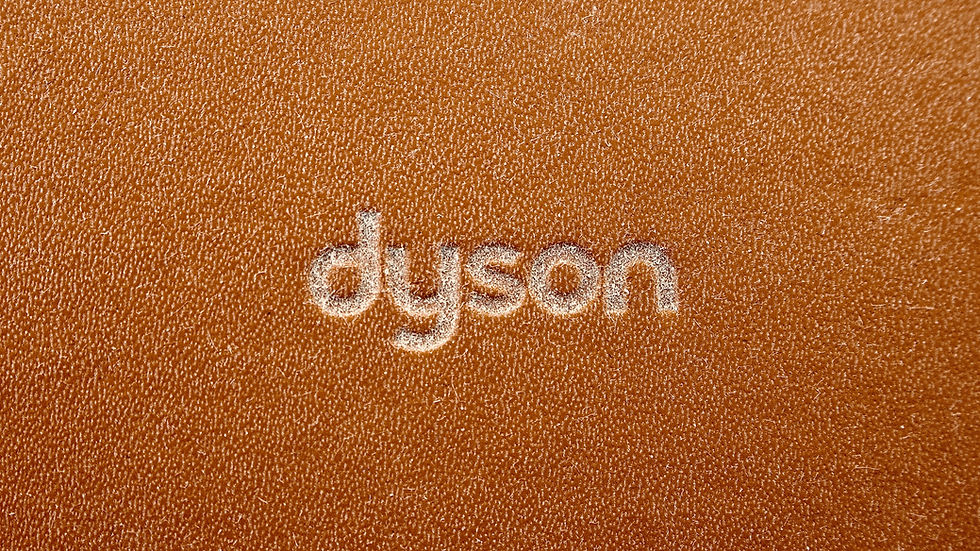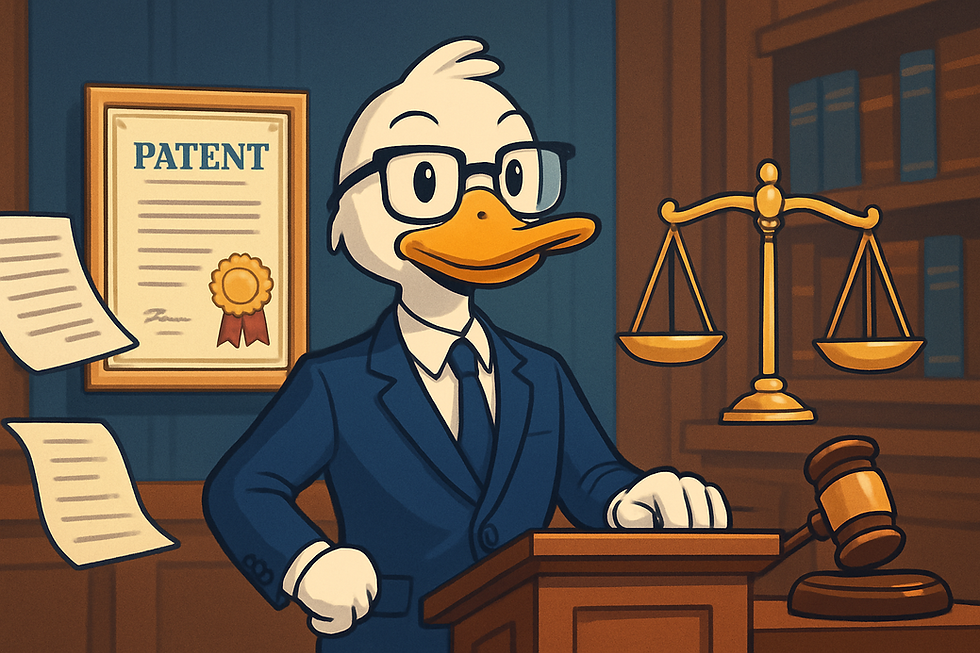Deciding Patent Venue: How TC Heartland Changed the Game
- Copperpod
- Aug 31, 2018
- 5 min read
Updated: Apr 14, 2020
For decades, under section 28 U.S.C. § 1391, the federal court system permitted the plaintiff to select any judicial district for filing a patent infringement case where the defendant did business, such as sale of accused products. The plaintiff can also file a patent infringement case in the judicial district where the residency of the defendant is present.
28 U.S.C. § 1391
(b) Venue in General - a civil action may be brought in—
(1) a judicial district in which any defendant resides, if all defendants are residents of the State in which the district is located;
(2) a judicial district in which a substantial part of the events or omissions giving rise to the claim occurred, or a substantial part of property that is the subject of the action is situated; or
(3) if there is no district in which an action may otherwise be brought as provided in this section, any judicial district in which any defendant is subject to the court’s personal jurisdiction with respect to such action.
(c) Residency - For all venue purposes—
(1) a natural person, including an alien lawfully admitted for permanent residence in the United States, shall be deemed to reside in the judicial district in which that person is domiciled;
(2) an entity with the capacity to sue and be sued in its common name under applicable law, whether or not incorporated, shall be deemed to reside, if a defendant, in any judicial district in which such defendant is subject to the court’s personal jurisdiction with respect to the civil action in question and, if a plaintiff, only in the judicial district in which it maintains its principal place of business; and
(3) a defendant not resident in the United States may be sued in any judicial district, and the joinder of such a defendant shall be disregarded in determining where the action may be brought with respect to other defendants.
As a result of this prevailing standard, Eastern District of Texas (EDT) became a highly preferred venue for patent cases. On study for example, in 2015 around 2376 cases were filed in Eastern District of Texas, even though most of the defendants in these cases had no significant roots in that district. Most technology companies understandably come out of Silicon Valley and/or are incorporated in Delaware, both miles away from the sleepy judicial towns of Marshall and Tyler in EDT.
The following table depicts the patent cases filed in U.S. district courts from 1997-2016.


Even though most studies have concluded that statistically EDT juries are at least as much (if not more) likely to deliver a verdict for the defendants as the national average (See http://mcsmith.blogs.com/eastern_district_of_texas/), the disparity in filing statistics results from plaintiff-friendly local rules and procedures in the EDT courts that puts more pressure on defendants to settle and therefore allows quick recovery of damages for the plaintiffs.

The status quo was finally challenged in May 2017, when the United States Supreme Court ruled concerning about the venues in patent infringement lawsuits in TC Heartland LLC v. Kraft Foods Group Brands LLC.
Kraft Foods filed a case against TC Heartland in 2014 related to one of its low calorie sweeteners. Kraft Foods filed the case in the District of Delaware. TC Heartland filed a motion for transferring the venue to the Southern District of Indiana alleging that since TC Heartland had no business place in Delaware, the venue was improper. TC Heartland cited the Supreme Court decision of Fourco Glass Co. v. Transmirra Products Corp. 353 U.S. 222 (1957) and 353 U.S. 226 (1957) that for purposes of patent infringement suits, a corporation “resides” in the state it was incorporated in. Both the District Court and the Federal Court rejected TC Heartland’s argument, and fell back to the prevailing 28 U.S.C. § 1391 standard.
After that TC Heartland filed a writ to the Supreme Court in September 2016, addressing the interpretation of “resides” in 28 USC 1400 (b) and the writ was granted in December 2016. Supreme Court issued a decision on May 22, 2017 under section 28 USC 1400 (b) which narrowed the forum scope by limiting the venue to the terms provided in this section.
28 U.S. Code § 1400 (b) –
Any civil action for patent infringement may be brought in the judicial district where the defendant resides, or where the defendant has committed acts of infringement and has a regular and established place of business.
The impact of the TC Heartland decision was felt almost immediately. EDT not only saw an immediate decline in the number of new cases filed – but also saw a flurry to motions to change venue in the ongoing cases as well. The following shows the impact on case filing trends in various districts.

Eastern District of Texas (EDT)
In Eastern District of Texas the number of new infringement cases filed reduced more than a half, from 39.61% in 2016 to 15.04% in 2017.
District of Delaware (DD)
For courts like District of Delaware, a dramatic rise has been noticed i.e. from 12.1% in 2016 to 22.9% in 2017 (mainly due to the fact that most companies are incorporated in Delaware).
Delaware District court is also popular for filing the patent cases as most of the companies register themselves in that district.
Delaware has some business-friendly tax law. For example, the people having business do not need to pay state corporate income tax. This is an advantage for the companies due to which investors prefer Delaware corporations.
Delaware offers greater privacy for small businesses. For example, Delaware corporations do not need to disclose any officer or director names on their incorporation documents.
Northern District of California (NDC)
Northern District of California (NDC) has also seen a three-fold rise in filing the cases, the percentage increased from 2.3% in 2016 to 6.8% in 2017.
After TC Heartland, plaintiffs have been forced towards districts that house technology companies’ headquarters. The Northern District of California, and Silicon Valley in particular, is home to a lot of technology companies.
The TC Heartland decision really changed the game for patent litigation, and in particular for non-practicing entities (NPE) who have overwhelmingly preferred EDT as their venue of choice. Years of intense patent litigation in the state has also encouraged a dense concentration of very skilled patent litigators in the state, and in Dallas and Austin in particular, and those skills are difficult to build, discover and procure otherwise. Texas will remain therefore a popular destination for patent attorneys and for patent owners to hire outside counsel - though it would be the "local counsel" stalwarts down in Marshall, TX and Tyler, TX who will ultimately face the biggest downturn in the wake of the decision.
References:
https://bannerwitcoff.com/wp-content/uploads/2017/12/18-0027_BW_FallWinter_2017-IP-Update-Newsletter_RV6.pdf
https://en.wikipedia.org/wiki/TC_Heartland_LLC_v._Kraft_Foods_Group_Brands_LLC
https://www.supremecourt.gov/opinions/16pdf/16-341_8n59.pdf
https://www.law.cornell.edu/uscode/text/28/1391
https://harvardlawreview.org/2017/11/tc-heartland-llc-v-kraft-foods-group-brands-llc/
https://www.mercatus.org/publication/abuse-patent-venue-rules-reaches-record-breaking-level
http://matthewsag.com/category/patent/
https://www.entrepreneur.com/article/287677
https://digitalcommons.law.scu.edu/cgi/viewcontent.cgi?referer=https://www.google.co.in/&httpsredir=1&article=1942&context=facpubs



Comments